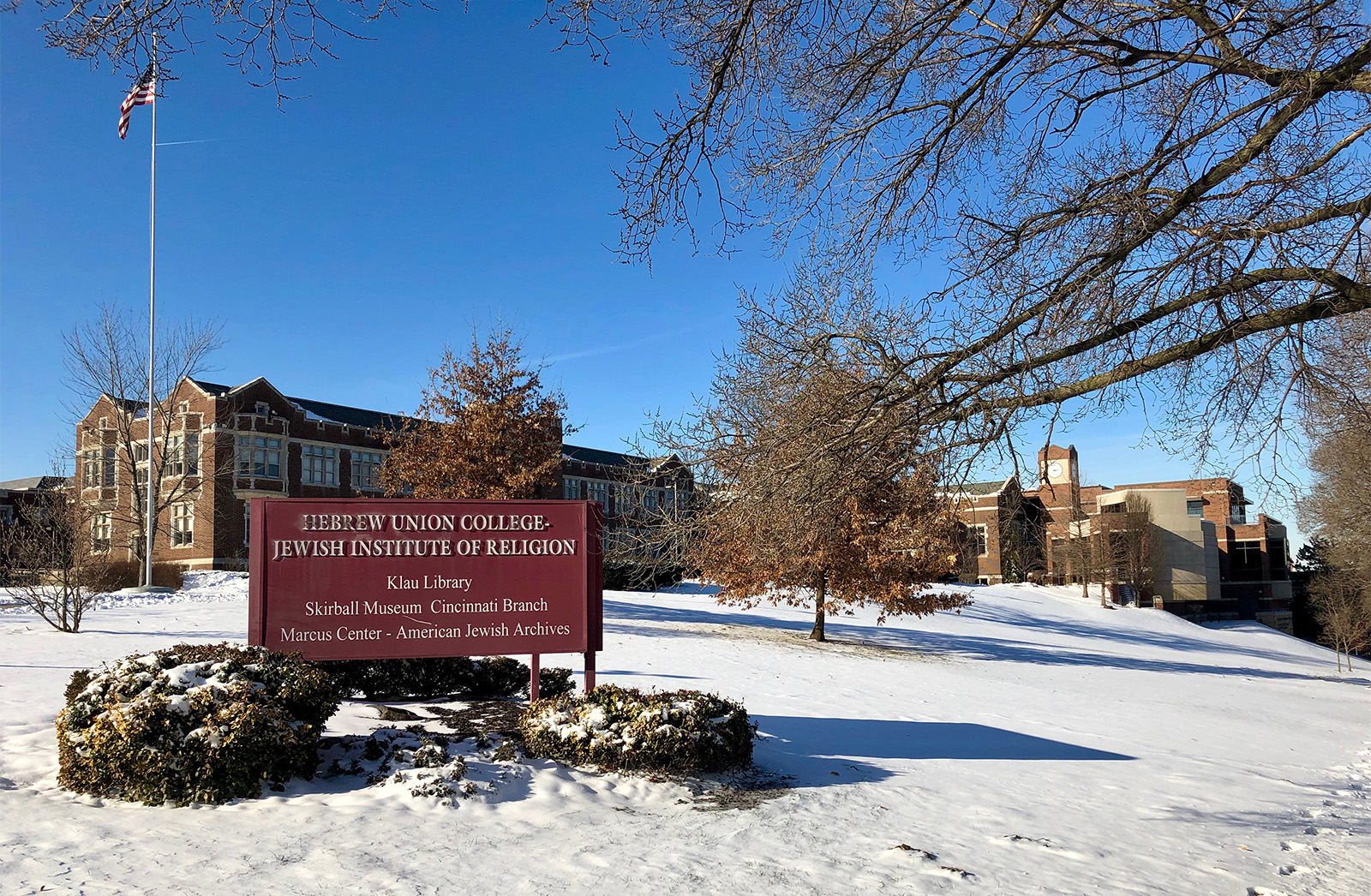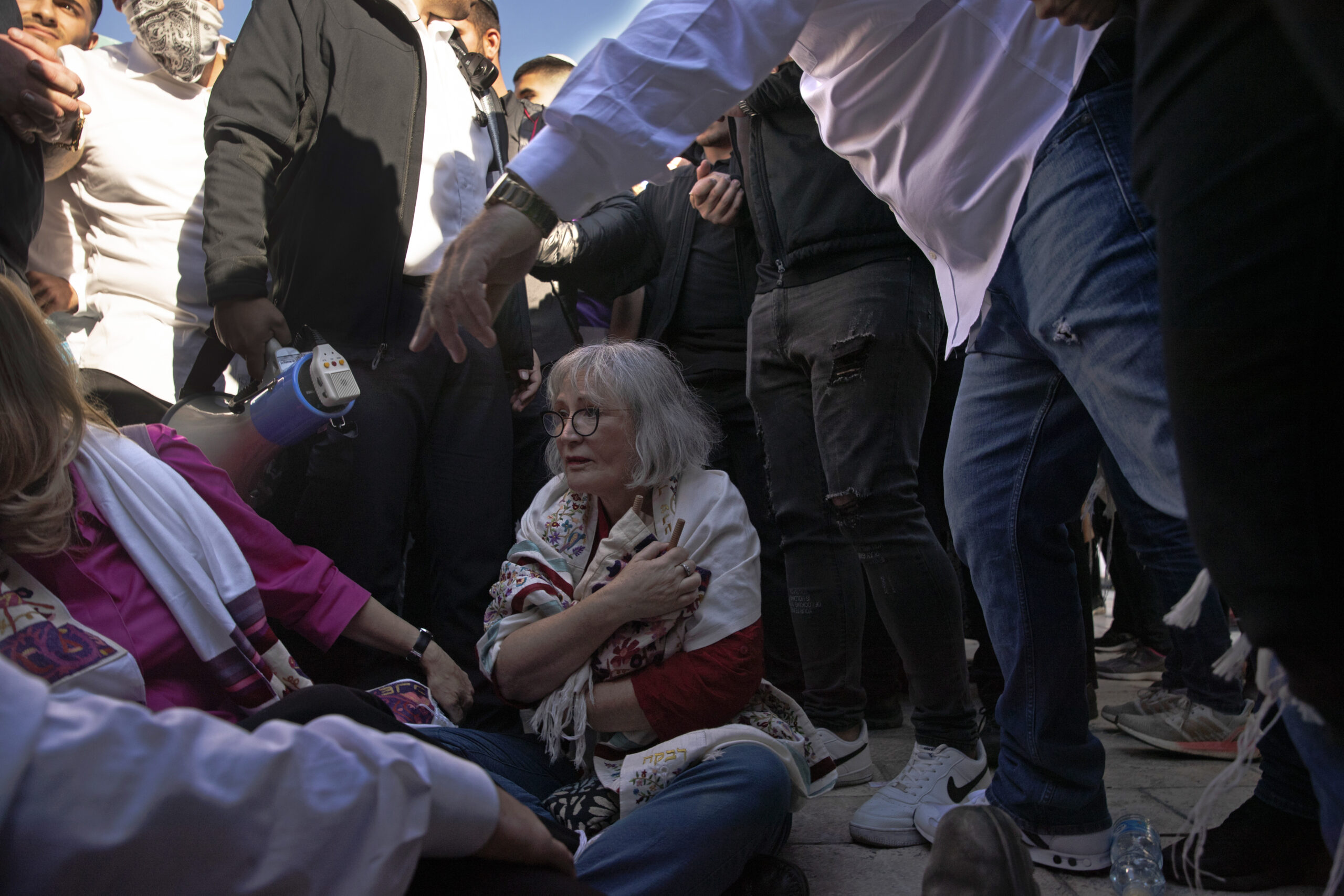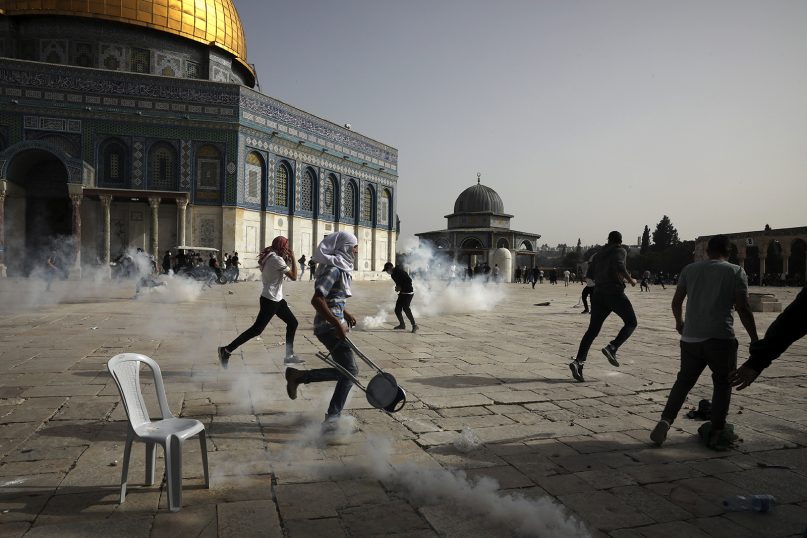(RNS) — In a year in which we expected the news to get better, the stories followed most closely by the Jewish community in 2021 were for the most part sequels to the difficult and dire stories of 2020: COVID-19, surging antisemitism and strife between Israel and Hamas in Gaza. But a new government in Jerusalem and Israel’s broadening ties to Arab countries brought glimmers of hope for peace. Here are the 10 most important stories on topics of Jewish concern this year:
1. Benjamin Netanyahu is ousted as Israeli prime minister.
In June, after four indecisive elections in two years, Israeli leaders Naftali Bennett and Yair Lapid assembled a broad-based coalition that enabled Bennett to replace Netanyahu as prime minister. In power for 15 years, Netanyahu was the longest-serving PM in the nation’s history.
RELATED: This Hanukkah, learn about the holiday’s forgotten heroes: Women
An early major achievement of the new coalition was the Israeli parliament’s adoption of a national budget, something that had not been done for three years.
2. Israel and Hamas trade missile fire.
In May, 11 days of military hostilities between the Gaza-based Hamas terrorist group and Israel resulted in Arab-Jewish unrest in several Israeli cities. Hamas launched more than 4,000 rockets from Gaza toward the Jewish state, including the holy city of Jerusalem for the first time.
Israel responded to the attacks with strong military action and defended itself with the “Iron Dome” anti-rocket defense system.

In this May 4, 2019, file photo, Israeli air defense system Iron Dome takes out rockets fired from Gaza near Sderot, Israel. The Israeli Defense Ministry said March 16, 2021, that the Iron Dome air defense system has been upgraded and is now capable of intercepting rocket and missile salvos as well as simultaneous attacks by unmanned aerial vehicles. (AP Photo/Ariel Schalit, File)
3. Antisemitism continues to rise in the West.
The year saw a continuing antisemitic upsurge, especially in the United States, Britain and continental Europe. The mounting anti-Jewish attacks were both verbal and physical. Several members of the U.S. Congress spewed obscene anti-Jewish conspiracy theories and antisemitism was an integral component of the Jan. 6 insurrection at the U.S. Capitol.
4. Abraham Accords link Israel to Middle Eastern neighbors.
The “Abraham Accords” were strengthened in 2021 as Israel continued to increase its diplomatic, tourism, security and economic links with the United Arab Emirates, Bahrain, Oman and Morocco. Bennett’s December visit to Abu Dhabi in the UAE was an historic first.

Israel’s new prime minister, Naftali Bennett, raises his hand during a Knesset session in Jerusalem June 13, 2021. (AP Photo/Ariel Schalit)
5. Synagogues adapt to COVID-19 with innovation.
Faced with the continuing global COVID-19 pandemic, synagogues around the world made significant innovations for new creative forms of worship, study and other activities that had always been in-person events.
“Sofa synagogues” electronically linking geographically separated people via the internet became the norm. Many of these solutions are likely to become fixtures of Jewish life even when and if the dangerous virus is finally crushed.
6. Sexual abuse stuns Jewish institutions.
The Hebrew Union College-Jewish Institute of Religion — Reform Judaism’s flagship educational institution — issued a devastating public report late in the year documenting a long record of faculty sexual abuse, much of it aimed at female rabbinical students. The report included two former HUC-JIR presidents. The new year may see similar negative reports from other major Jewish institutions and organizations.

The campus of Hebrew Union College-Jewish Institute of Religion in Cincinnati in January 2019. Photo by Warren LeMay/Wikimedia/Creative Commons
7. Orthodox Jews refuse COVID-19 vaccinations.
Many Orthodox Jews in Israel, the U.S. and other regions of the world remained unvaccinated against COVID-19. Their refusal reflected the increasing tension and polarization that exists within the global Jewish community. Both Israeli chief rabbis urged vaccinations as a way of curbing the number of infections and deaths, but other prominent Orthodox leaders refrained from endorsing anti-COVID-19 measures.
8. Women of the Wall break through.
For decades, the Israeli organization Women of the Wall has pressed for the right of women to worship publicly at Judaism’s most holy site, the Western Wall, a remnant of the Holy Temple in Jerusalem. Orthodox Jewish authorities who control access to the Wall have just as adamantly forbidden public prayers by women at the sacred site.
But after several significant court victories and the change in the Israeli government, Women of the Wall seemed to have turned the tide. In November, Israeli police at the Wall protected a group of 300 women and men who came to pray there from the intense harassment of thousands of young Orthodox men.

A member of the Women of the Wall clutches a Torah scroll as she is surrounded by Israeli security forces holding back protesters at the Western Wall, the holiest site where Jews can pray, in the Old City of Jerusalem on Nov. 5, 2021. Thousands of ultra-Orthodox Jews gathered at the site to protest against the Jewish women’s group that holds monthly prayers there in a long-running campaign for gender equality at the site. (AP Photo/Maya Alleruzzo)
9. Israel stars on screen.
The once small, frequently ignored Israeli film industry gained artistic acclaim and wide international audiences in 2021. Netflix, the popular streaming TV service, featured several Israeli movies, while Israeli hit shows such as “Fauda,” “Shtisel,” “When Heroes Fly” and “Hashoter Hatov” (“The Good Cop”) became virtual water cooler talk.
10. Burgeoning numbers of Orthodox Jews are led by young people.
A Pew Research survey showed Orthodox Jews constitute only 9% of the American Jewish community. But in the 18-to-29 age group, the share of Orthodox Jews rises sharply to 17% of all Jews in that vital young adult cohort. The survey also indicated a total U.S. Jewish population of 7.5 million, an increase from 6.8 million eight years ago. Much of that increase came from Orthodox Jews.
Deaths in 2021
Notable deaths in 2021 include Rabbi Richard Hirsch, a pioneering leader of Reform Judaism in Israel; beloved actor Ed Asner; longtime TV talk show host Larry King; Faye Schulman, a 101-year-old Holocaust survivor whose remarkable photographs, taken in secrecy and under difficult conditions, documented both Nazi German acts of brutality and the Jewish armed partisan fighters who lived in Polish forests; and the brilliant composer-lyricist Stephen Sondheim.
(Rabbi A. James Rudin is the American Jewish Committee’s senior interreligious adviser and author of the upcoming book “The People in the Room: Rabbis, Nuns, Pastors, Popes and Presidents.” He can be reached at jamesrudin.com. The views expressed in this commentary do not necessarily reflect those of Religion News Service.)





